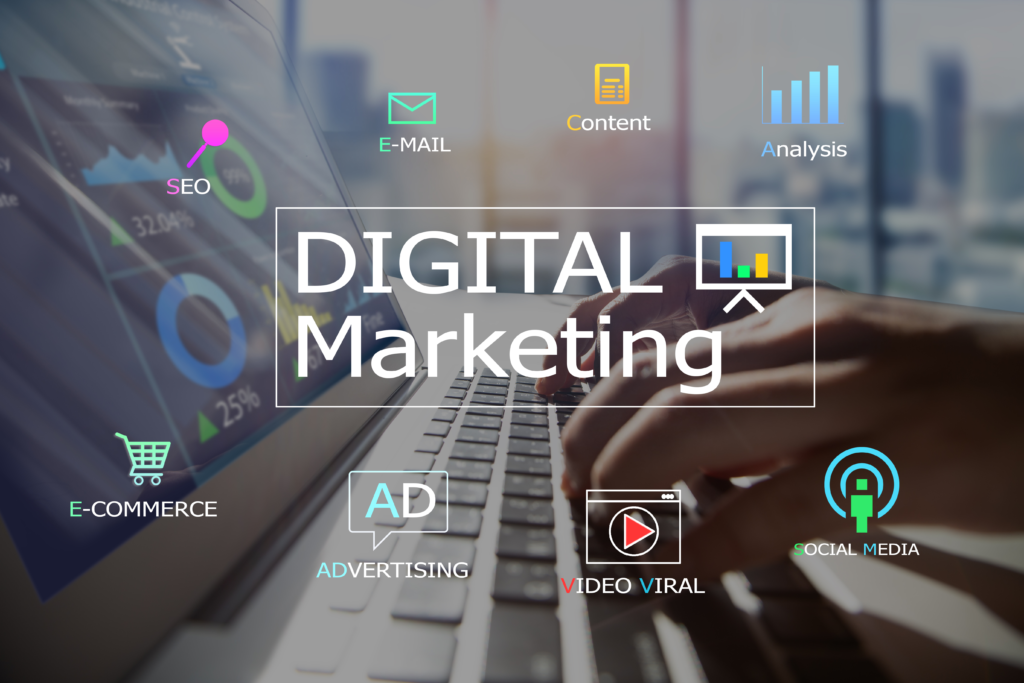The Future of Digital Marketing: Adapting to Constant Change

In the ever-evolving landscape of digital marketing, one thing remains constant: change. The digital marketing industry is a dynamic, shape-shifting entity that continually adapts to new technologies, consumer behaviors, and market trends. As businesses strive to stay relevant and competitive, understanding the future of digital marketing and how to adapt to these changes becomes paramount.
- Embracing AI and Automation
Artificial Intelligence (AI) and automation have already made significant inroads in digital marketing, and their influence is only set to grow. AI-powered tools are transforming how businesses target, engage, and convert customers. Chatbots, for instance, offer real-time customer support, while AI algorithms analyze vast datasets to personalize marketing messages.
To adapt, businesses should invest in AI-driven marketing platforms and learn how to interpret AI-generated insights. The ability to harness AI’s predictive analytics can help marketers make more informed decisions and streamline their strategies.
- Video Dominance
Video content continues to gain momentum in the digital marketing landscape. Platforms like YouTube, TikTok, and Instagram Reels are thriving, and live streaming has become a powerful tool for engaging with audiences in real time. Video’s versatility makes it an essential medium for conveying brand stories, demonstrating products, and connecting with consumers on a personal level.
Businesses should invest in high-quality video production, optimize videos for search engines, and leverage live streaming to foster authentic interactions with their audience. Incorporating video into marketing strategies is no longer optional but a necessity.
- The Rise of Voice Search
Voice-activated devices like Siri, Alexa, and Google Assistant have transformed the way people search for information online. As voice search continues to grow, businesses must adapt their SEO strategies to accommodate this shift. Voice search queries tend to be more conversational and long-tail, emphasizing the importance of natural language optimization.
To stay ahead, marketers should optimize content for voice search by addressing user questions, providing succinct answers, and structuring their content to be easily discoverable via voice-activated devices.
- Personalization at Scale
Consumers increasingly expect personalized experiences. Tailoring marketing efforts to individual preferences and behaviors is no longer a luxury but a necessity. The future of digital marketing lies in delivering hyper-personalized content, offers, and recommendations.
Leveraging data analytics and machine learning algorithms, businesses can create customer personas, segment audiences, and deliver customized content and product recommendations. Embrace the power of personalization to enhance customer engagement and drive conversions.
- Augmented and Virtual Reality (AR/VR)
Augmented Reality (AR) and Virtual Reality (VR) technologies are on the brink of revolutionizing digital marketing. Brands can create immersive experiences that allow consumers to interact with products virtually. For example, furniture retailers can offer customers the ability to visualize how a couch would look in their living room using AR apps.
To adapt to this trend, businesses should explore AR and VR applications in their industry, collaborate with AR/VR developers, and create immersive brand experiences that captivate audiences.
- Ethical and Transparent Marketing
In an era of increasing digital scrutiny, businesses must prioritize ethical and transparent marketing practices. Customers value brands that demonstrate authenticity, integrity, and social responsibility. Misleading advertising, data breaches, and deceptive practices can severely damage a brand’s reputation.
To adapt, businesses should communicate their values, ensure transparent data practices, and be accountable for their marketing efforts. Building trust with consumers through ethical conduct is not just a trend but a fundamental principle.
- Data Privacy and Compliance
With the implementation of regulations like GDPR and CCPA, data privacy has become a focal point in digital marketing. Consumers demand more control over their data, and businesses must comply with stringent data protection laws.
To adapt, marketers should educate themselves on data privacy regulations, implement robust data protection measures, and obtain explicit consent for data collection and usage. A proactive approach to data privacy builds trust and avoids legal repercussions.
- Multichannel Integration
The future of digital marketing lies in creating cohesive and integrated customer experiences across multiple channels. Consumers engage with brands across websites, social media, email, and more. To stay competitive, businesses should ensure consistent messaging and branding across all touchpoints.
Invest in marketing automation platforms that enable multichannel integration, analyze customer journeys, and provide unified customer insights. Streamlining communication channels creates a seamless and memorable customer experience.
In conclusion, the future of digital marketing is an exciting and ever-changing landscape. To thrive in this dynamic environment, businesses must be agile, adaptable, and forward-thinking. Embrace AI and automation, harness the power of video, optimize for voice search, and deliver hyper-personalized experiences. Incorporate AR/VR, prioritize ethical marketing, and safeguard data privacy. Above all, focus on creating cohesive, multichannel customer experiences that resonate with your audience. By staying at the forefront of digital marketing trends, businesses can not only survive but thrive in the evolving digital landscape. Remember, change is the only constant, and those who embrace it will lead the way in the future of digital marketing.


